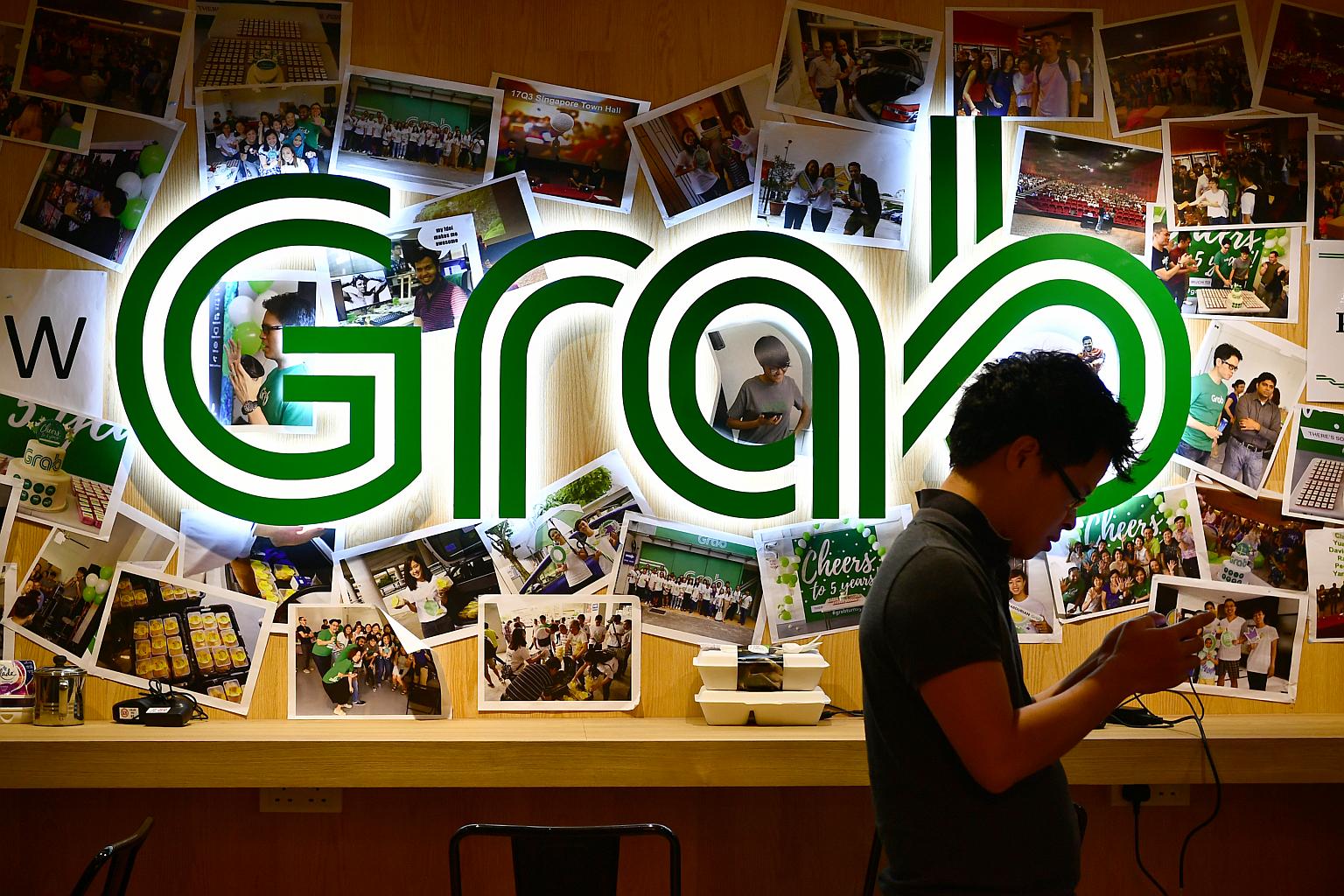URA partners Grab to study commuter travel patterns
Sign up now: Get ST's newsletters delivered to your inbox

The one-year partnership will involve Grab working with URA to analyse land use and mobility data.
PHOTO: ST FILE
The Urban Redevelopment Authority (URA) has signed an agreement with ride-hailing firm Grab to study commuter travel patterns in Singapore.
A statement yesterday said that the one-year partnership will involve Grab working with the authority to analyse land use and mobility data.
This is aimed at enhancing the URA's understanding of commuting patterns and behaviours to improve public transport efficiency, given the increasing popularity of ride-hailing apps.
A survey conducted by the Public Transport Council last year found that some 70 per cent of commuters polled had taken a private-hire car in the preceding week, up 20 per cent from 2016.
The study also aims to give the URA more insight into the types and time of journeys taken on such ride-hailing services, as well as the travel patterns of users of such services.
"These insights will potentially be useful in the planning of land use and infrastructure to improve travel time and convenience for commuters, and eventually, of a more car-lite Singapore," said the statement, adding that all data is anonymous and aggregated.
URA deputy chief executive Han Yong Hoe said: "Collaborations with partners with data-rich operations, such as Grab, help us get a more comprehensive understanding of the ground and deeper insights into current and future scenarios." He added that this would allow URA to continue to respond to the changing needs of the city.
Grab Singapore head Lim Kell Jay said data science helps the Republic to become more sustainable and liveable.
"By working with URA to combine data from both the private and public sectors, we hope to improve the efficiency of Singapore's transport network and better support the nation's urban planning efforts," he said.
Last year, American ride-hailing giant Uber introduced its urban planning tool Uber Movement, which provides data of its trips that can be used by the authorities to analyse traffic patterns.
Initially available in a number of cities in the United States, Uber Movement was expanded in March to London, where it has been battling to keep its licence to operate.


